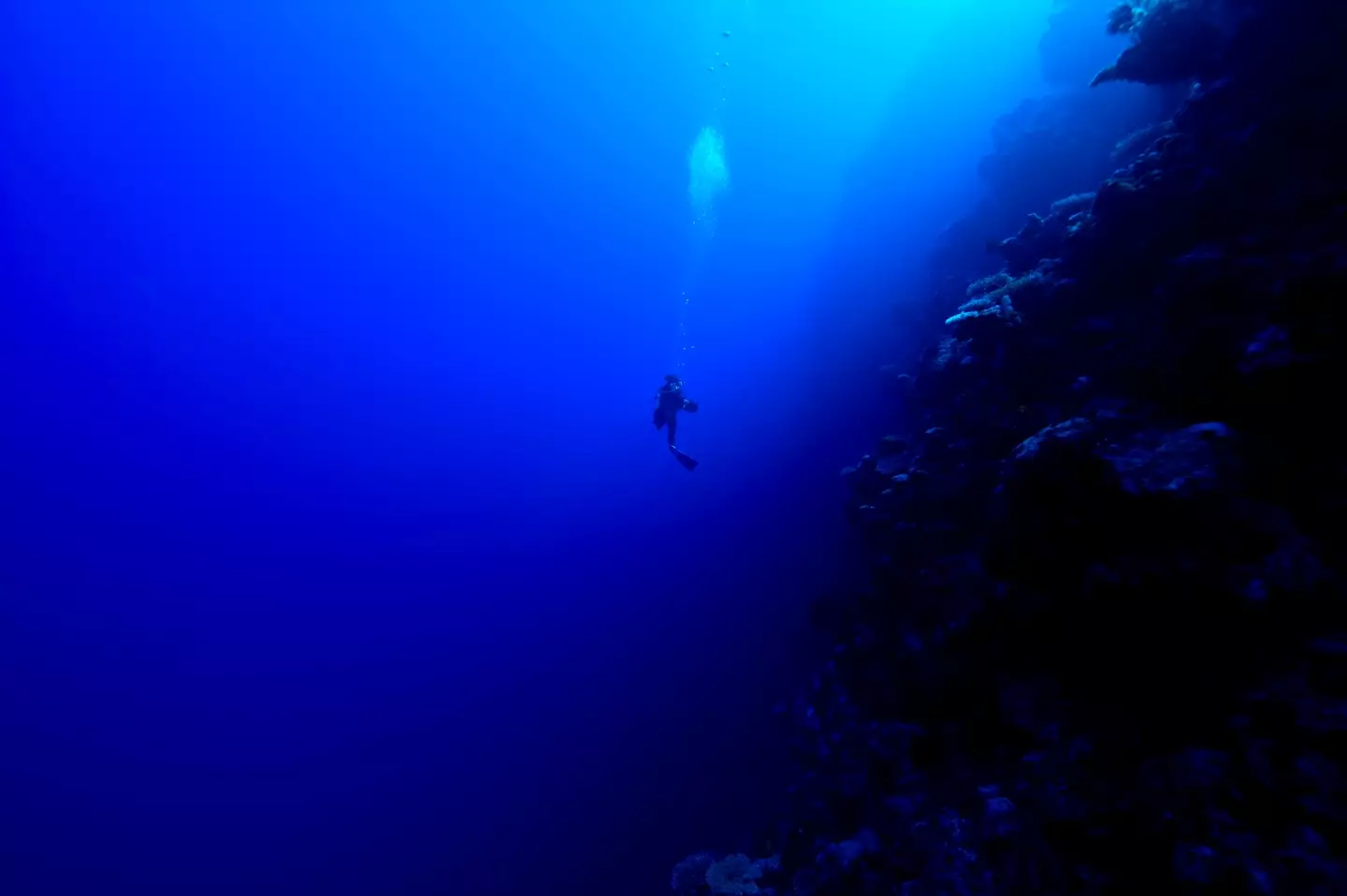
A man who dropped 65 feet into ocean depths wanted to prove a terrifying theory about the sea.
Despite our huge expeditions of land that have uncovered so much about our planet, much of what lies in the ocean is a mystery.
Only five percent of the ocean has ever been explored, leading to many questions about what is lurking in the rest of it.

Advert
Part of the issue is due to our own human limitations of not being able to survive in the depths.
But what actually happens to our body when we free dive with no breathing equipment?
One man decided to find out.
In a video that has now gone viral on Reddit, a free diver explained what happens when you take the plunge into the depths.
Advert
In the clip, he said: “At what depth do I start sinking underwater?”
He then demonstrates, going down to different depths while holding a rope.
At 16 ft (five meters) and then 32 ft (10 meters), the man starts to float.
At 40 ft (12 meters), he remains ‘perfectly neutral’ in the water.
Advert
However, when the man goes down to 50 ft (15 meters), he starts to sink.
Viewers were shocked by the video, with many taking to social media themselves to share their reactions.
One puzzled user wrote: “Wtf why does this happen?”

Advert
Another explained: “Your lungs are compressed by the water pressure, making the air in them less buoyant.”
A third person commented: “I have probably close to 500 dives and this kind of scenario still makes me nervous to get in the water some days. Even with all the training.”
A fourth said: “So the bottom of the ocean could be full of skeletons…”
A fifth wrote: “WHAT DO YOU MEAN YOU SINK WHEN YOU GO DEEPER WHAT THE F***.”
Advert
And a sixth user added: “It's because the water pressure is compressing the air that is in your lungs, causing it to become more dense, and thereby making your body less buoyant.”
In an article, Kevin Fong explained the science behind the phenomenon, saying: “If you descend only 10m into the ocean, you are subjected to another additional atmosphere of pressure: that’s twice as much pressure as you’ve been used to at the surface.
“And for every 10m beyond you get another atmosphere of pressure. That starts to manipulate your body, your anatomy and your physiology in quite profound ways, which actually make the endeavor of diving into the deep ocean uniquely difficult.”